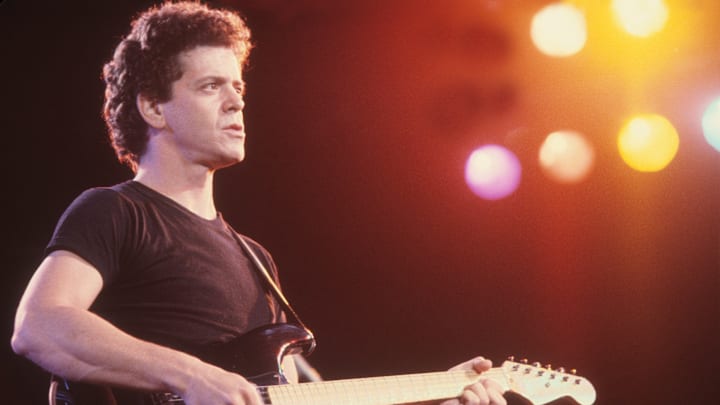No. 4 - "Walk on the Wild Side," 1972
If you only know one Lou Reed song, this is the one you know. The song is instantly recognizable sliding bass has been used in commercials for Honda, Michelob, and Airbnb – something no one would ever have thought possible of a Lou Reed song. David Bowie produced Transformer and Mick Ronson contributed sparkling guitar and orchestrations, but Lou shines through on the songs.
"WWS" is a rather simple portrait of five regulars at Warhol’s Factory – outcasts from “normal” society who created their own home in Manhattan and helped spawn a cultural revolution. Lou was the only artist in the early ‘70s music scene capable of writing a line like “plucked her eyebrows on the way, shaved her legs, and then he was a she.” There still aren’t very many who can say something so simple and make the world suddenly look different.
No. 3 - "Caroline Says II," 1973
There are some fans who consider 1973’s Berlin to be Lou’s greatest achievement. I am not one of them. It’s true that its astonishing concept – tackling the violent breakup of a marriage in open and honest words – eventually would find universal critical acceptance, getting grand orchestral re-interpretations.
But even though I recognize the power of many songs, I don’t find it all that listenable. I make an exception for "Caroline Says II." A descendent of Lou’s “Says” songs, beginning with the Velvet’s outstanding "Candy Says," "Caroline" is another one of Lou’s tragic heroines who is trying to come to terms with her undeserved fate.
DeCurtis quotes Suzanne Vega as having an epiphany upon hearing the lyric “Caroline says, as she gets up off the floor, You can hit me all you want to, but I don’t love you anymore.” Rock songs could be about anything. Anything in the world.
